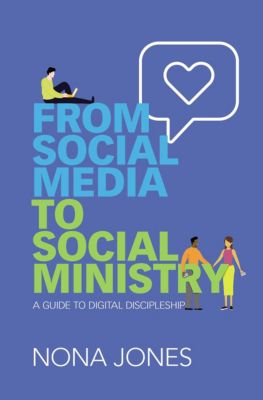
For those who prefer in-person over online worship, the sense of connection to other people drives them, according to Pew Research.
By Aaron Earls
Sorry, pastor. You probably aren’t the main reason someone wants to physically attend a worship service. They’re showing up in person because of the other people in the room. But you may be the reason someone is watching online.
A Pew Research study found 16% of U.S. adults only attend religious services in person, 10% only watch online or on TV, and another 17% regularly do both. Included among those who attend both physically and virtually, 13% prefer attending in person, 2% prefer watching, and 2% say they have no preference.
While in-person attendance is rebounding, it hasn’t quite reached pre-pandemic levels. So what makes someone want to physically attend?
Pew asked the 13% who say they do both but prefer in person exactly why they’d rather attend physically. With the open-ended question, respondents gave six types of answers.
Deeper sense of community
The primary reason given for an in-person preference, far above any other, is the connection with others in the congregation. Around half (52%) say this is their motivation to attend in person, more than three times the percentage of any other reason.
The primary reason given for an in-person versus online church attendance preference, far above any other, is the connection with others in the congregation, according to Pew Research. Click To Tweet“Watching online is a great option when you are unable to attend, but joining together with other believers is how we truly fellowship,” one respondent said. “You cannot get that from watching from afar.”
Another said, “There is something powerful about being in community with other believers and getting that personal connection and fellowship. In-person is much more uplifting and impactful.”
Services are more personal
For 14% of those who do both but prefer in-person worship, they’re motivated by the personal nature of physical participation. One respondent said, “It’s more up close and personal. You can answer questions. You can participate in the service to get a better understanding.”
Worship practices can’t be replicated
Around 1 in 13 (8%) say worship practices like communion and congregational singing aren’t as meaningful or even possible online. “For over 60 years, I have been a church musician, so congregational singing is very meaningful to me,” one respondent said. “Also, I think it is important to see, talk to, and encourage my fellow believers.” Another said, “I enjoy taking part in the service; singing hymns, taking communion, and seeing other church members in person.”
Other reasons
Fewer say their preference for in-person worship services stems from there being fewer distractions (6%), better able to feel the presence of God (6%), or because the Bible commands it (4%).
Virtual preference
Among the 2% who say they prefer online, many allude to the comfort and convenience of watching services. “It gives me more freedom and extra time to multitask and do some other things,” one said.
Much of their reasoning sounds similar to those who say they attend church services less often since the pandemic. A previous Pew Research study found four primary reasons missing churchgoers give for staying away: COVID-19, comfort, challenges, and changes.
Additionally, most Americans (66%), even most evangelicals (54%) say worshiping alone or with one’s family is a valid replacement for regularly attending church, according to the 2022 State of Theology.
Reason to watch
One in 10 U.S. adults says they regularly attend religious services both in-person and virtually and watch services at a congregation different from the one they most often attend in person. They are primarily driven by the sermon and the one delivering them.
The sermons (18%) and the pastor (13%) are the top reasons churchgoers give for watching services online of a church different from the one they attend in person. Click To TweetThe top reasons churchgoers give for watching the services of another church are the sermons (18%), the pastor (13%), the fact that it is true to Scripture (7%), the ability to hear and learn about specific topics (7%), that it offers a different perspective (6%), that it is convenient (6%), the music (5%), a personal connection to the congregation (4%), that it is interesting (3%), and that it strengthens their faith (2%).










